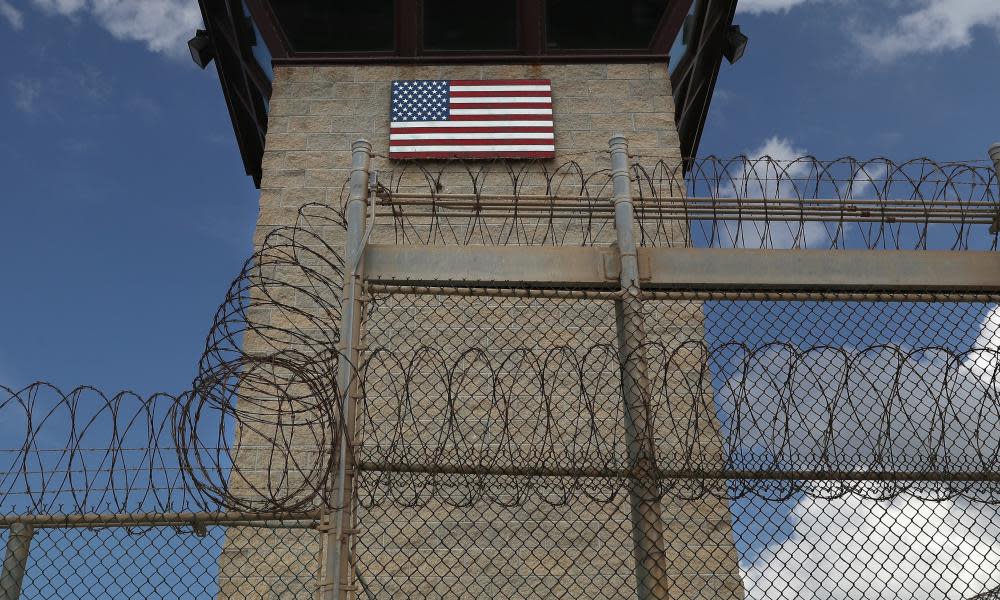Why I’m going on hunger strike | Tom Watson

I’m going on hunger strike from today. I’m not allowing myself anything but sips of water.
Why? This is not some George Osborne-inspired weight-loss plan. No. I’m following the Guantánamo diet in solidarity with two men who are being slowly starved to death by President Trump.
His administration has changed its practice towards detainees who choose to refuse food in protest at their incarceration. Previously they were force-fed, a cruel and inhuman punishment in itself. Now they are no longer fed at all. Make no mistake, these men will die at the hands of Donald Trump if nothing is done.
The human rights organisation Reprieve got in touch last week to alert me to the situation of two of their clients, Ahmed Rabbani and Khalid Qasim. They have been on long-term hunger strike in protest at their indefinite detention in the notorious prison camp without charge or fair trial. Neither man wants to die, but after over a decade of torture, injustice and indifference, they are desperate. The only thing they feel they can do, the only control they have, is to refuse food.
On 20 September, the authorities in Guantánamo stopped feeding Ahmed and Khalid altogether. It is no coincidence that this has happened under Trump, a man who has talked of wanting to “load up” the island prison with more “bad dudes”. As I write this, the two men have had nothing in their stomachs for 26 days.
Worse than just starving them, the medical teams at the American military base have stopped providing them with any treatment or even monitoring their health. That is criminal neglect, pure and simple.
After a day of no food, I will be quite hungry. I might even feel a bit weak and find it hard to concentrate. After 26 days of nothing at all, Khalid and Ahmed are almost certainly close to severe organ failure. It is a matter of time until irreversible damage is done; we may have already passed the point of no return. Make no mistake, force-feeding is cruel. But this dramatic change in practice is sadistic.
In a recent phone call, Khalid asked his lawyer from Reprieve: “When will my organs fail? When will my heart stop? I am slowly slipping away and no one notices.” She could not give him an answer. Neither can I and neither can the Guantánamo authorities.
Ahmed told his lawyer the new regime was being enforced by the most senior doctor on the base, saying: “He wants me to beg him for food, but I will not. He is like a dictator.” This is a man who is supposed to care for the prisoners.
So what can I and other MPs do about this?
First, we can’t let these two men die in silence. They are among the most powerless in the world and have faced grave injustice at the hands of our close ally. We need to take on their plight as our own and raise the alarm, on social media and in the House of Commons.
We should be asking questions of ministers. Why have they not spoken publicly about this? Have they raised it at the highest levels with their counterparts in the US? What responses have they got?
And we should be demanding that the prime minister show some leadership. Earlier this month, Theresa May said she wanted Britain to provide a “moral lead in the world”. This is her chance. She has closely allied herself with President Trump, holding his hand in Washington and inviting him here. She must now tell him to save the lives of Ahmed and Khalid, and she should go one step further.
She should tell President Trump to close down Guantánamo Bay and give the men locked up there what they have been asking for: a fair trial or a release. When America abandons our shared values, we must play the role of the critical friend.
So today I am calling on my fellow MPs and members of the public to take action and let Trump know the world is watching. We can all support Ahmed and Khalid by pledging a day of hunger strike and signing the petition demanding their fair treatment. At least they will know they are not alone in their long fight for justice.
• Tom Watson is deputy leader of the Labour party

 Yahoo News
Yahoo News 
